Affiliate links on Android Authority may earn us a commission. Learn more.
Google Pixel 5 buyer's guide: Everything you need to know
Published onApril 1, 2022
The Google Pixel 5 is very different from its predecessor, featuring solid specs but far from cutting edge. In this Google Pixel 5 buyer’s guide, we’ve got the info you’ll need to make a smart purchase decision. We’ll also answer your frequently asked questions about the phone. Let’s dive in!
Editor’s note: We’ll regularly update this Pixel 5 guide with more tips, resources, and details, so stay tuned.
Google Pixel 5 at a glance
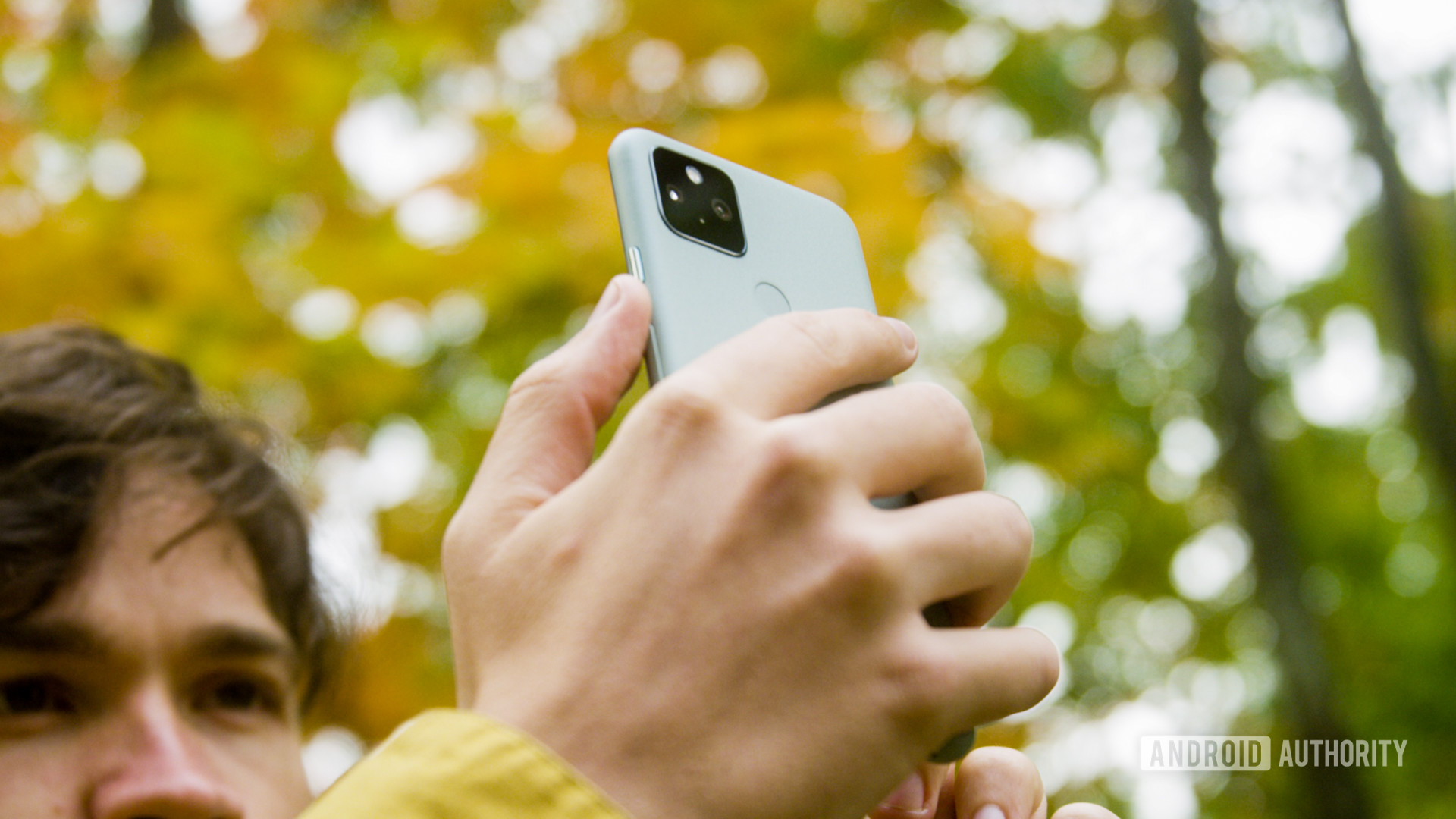
The Pixel 5 was announced on September 30, 2020, at Google’s Launch Night In event. This was Google’s top-end phone of 2020 and it’s a great option if you want:
- A more affordable 5G phone with some flagship-level features
- A great camera experience
- A smaller-than-typical size
- Quality software and guaranteed updates
The Pixel 5 costs $699 in the US, where it’s available in only one size, two colors, and one storage configuration. It competed with the LG Velvet, the OnePlus 9, OnePlus Nord (outside the US), the Samsung Galaxy A71, the Galaxy S20 FE, and a slew of other upper mid-range to flagship 5G phones. However, successors to a lot of these phones have already been announced, like the OnePlus 10, Galaxy S21 FE, and others.
However, Google has discontinued the phone, so you may find it hard to get your hand on it.
You should avoid the Pixel 5 if you want:
- The best performance possible in a phone
- Two-day battery life with normal use
- The best zoom capabilities
Further reading: The best Google products
Is the Google Pixel 5 worth buying?
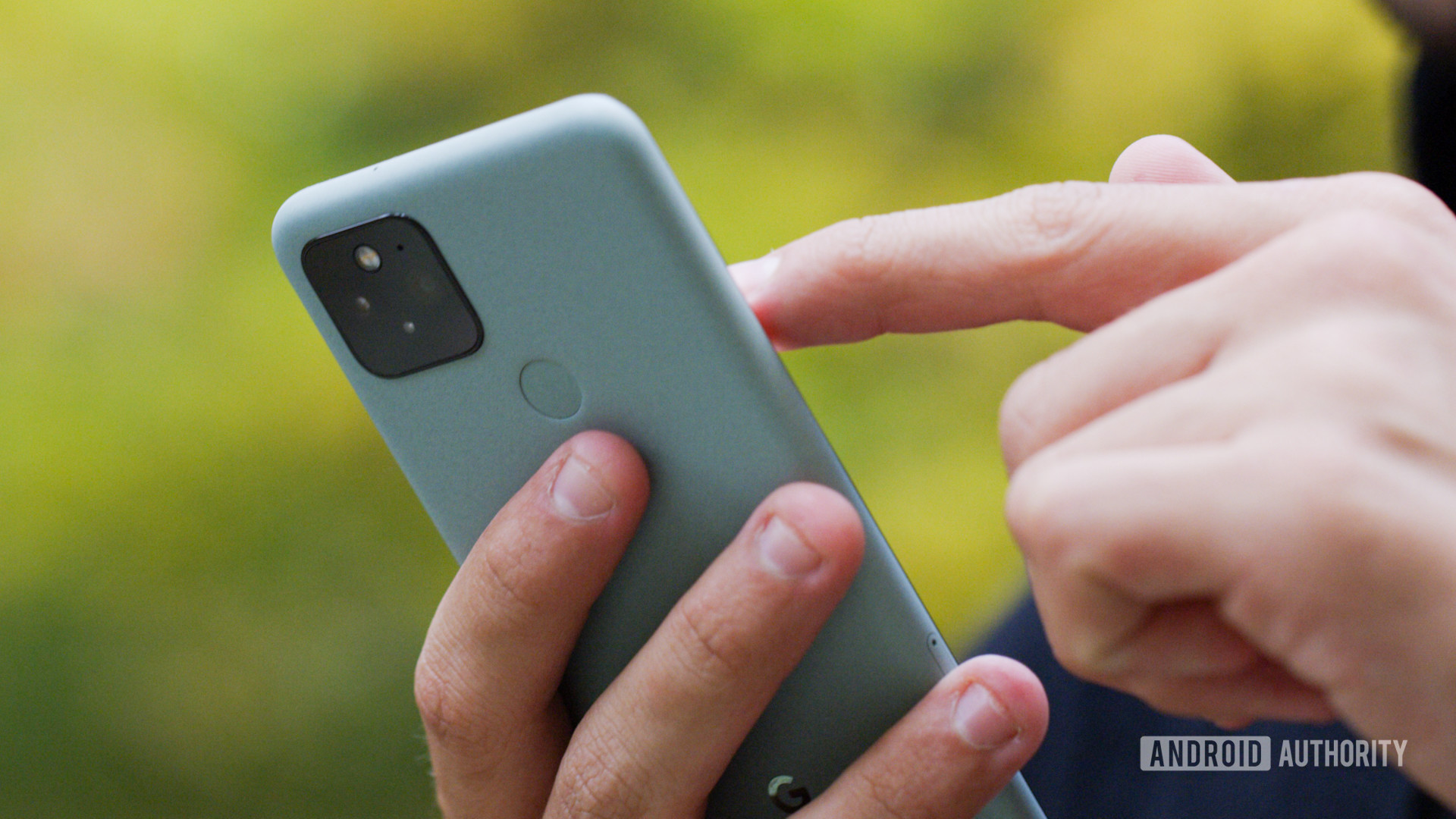
The $699 Google Pixel 5 looks like a good phone on paper in North America, with brands like realme and Xiaomi not a factor on the continent. But it still seems like a good purchase in general if you want a 5G phone with brisk updates and flagship-style features but don’t want to pay 2020 flagship money.
However, keep in mind that it’s not the latest phone in Google’s lineup anymore. The Pixel 6 is already out and offers a lot more, but it also costs more since the Pixel 5 can be had with a discount.
In the case of the spec sheet, the Pixel 4 was arguably the least impressive flagship of 2019, packing a small battery and lacking a triple rear camera setup seen on rival phones. For the Pixel 5, it looks like Google has beefed things up in some ways, but not in others.
Google’s phone shares the same price as the Samsung Galaxy S20 FE, and it delivers a few more extras on paper. Things like a 120Hz OLED screen, flagship silicon, triple rear camera, and microSD expansion are all present on Samsung’s phone, making for an arguably more impressive, flexible package.
At its launch price of $699, the Pixel 5 is not a great deal at this moment. But if you can get a good deal on it, it may still be worth it.
What reviewers are saying about the phone
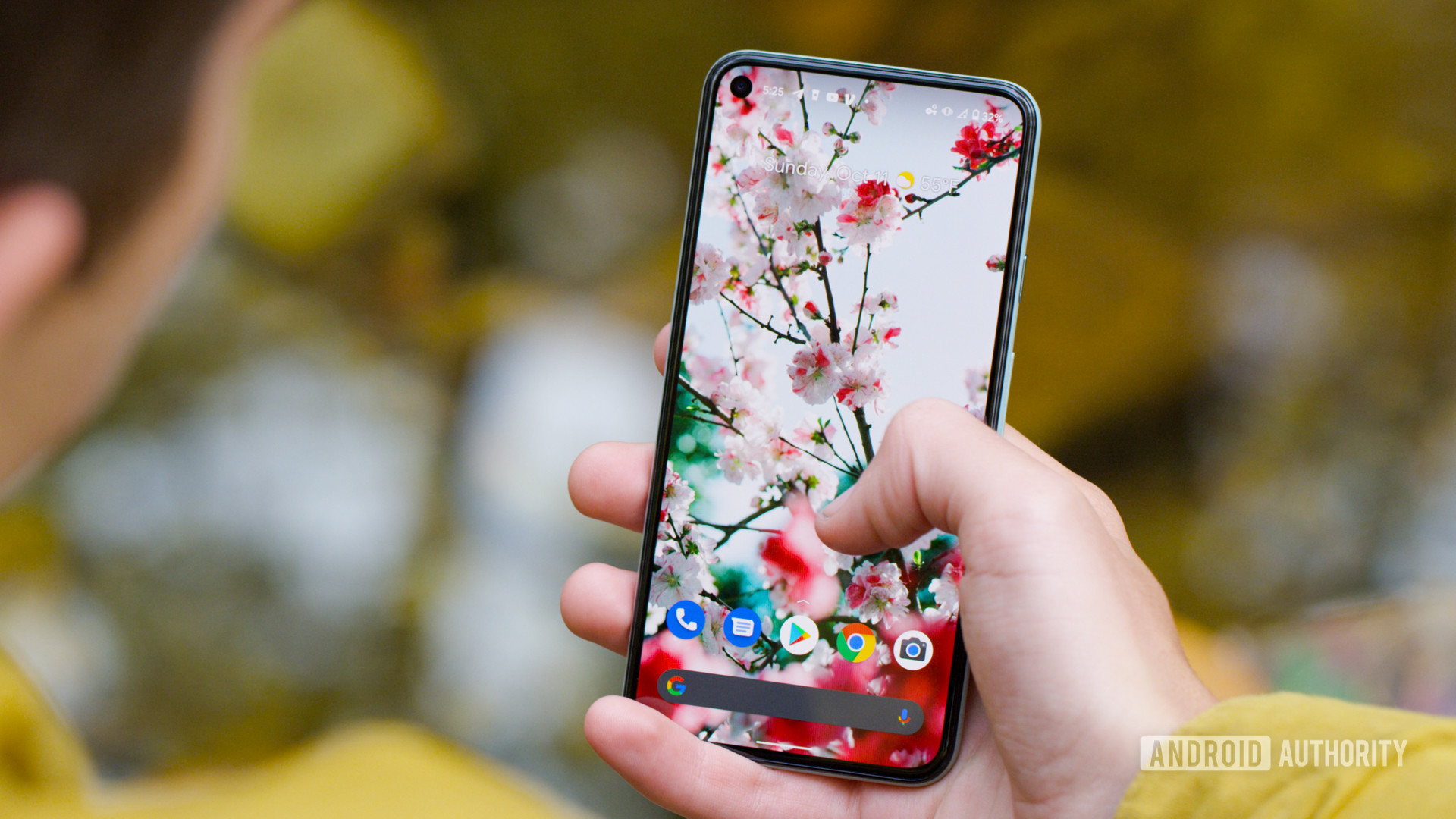
Our very own David Imel took the Pixel 5 for a spin and loved many things about it. These include a fantastic display, great battery life, wireless charging, and IP68 rating, among many others. Then there’s Pixel UI, which is a joy to use.
And let’s not forget about the camera setup. It’s great in all lighting conditions and has a few new features up its sleeve. However, it’s not quite as ahead of the competition as it used to be. Still, most people will be more than happy with the images it can capture.
The phone also has a few drawbacks that you should be aware of. Charging is a bit slow compared to some of the competition. There’s also no telephoto lens on board, which makes the camera setup a bit less versatile than we’d like. Then there’s the processor, which isn’t as powerful as the one you get with previous Pixel phones or 2020 flagships, which may or may not be a deal-breaker for you.
Regardless of its issues, David still feels the Pixel 5 is a great phone overall, as it does the basics better than any other smartphone on the market.
What other reviewers from around the web think
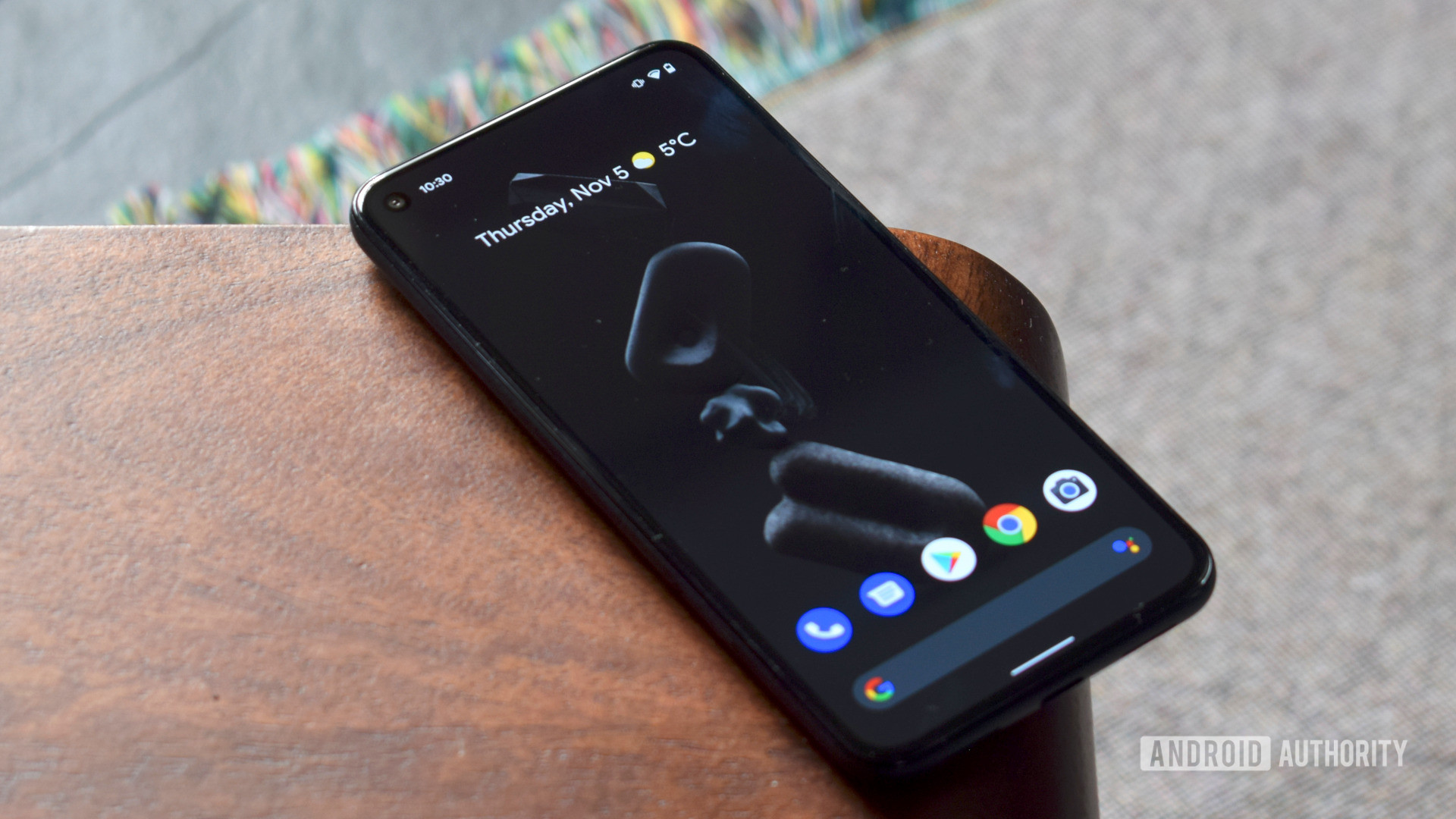
To give you the best overview of the Google Pixel 5, we looked at what reviewers from other publications had to say about it.
- Tech Radar’s David Lumb said that the Pixel 5 does what Pixel phones do best: it offers a great and simple camera experience along with a fantastic software experience. It’s a good handset overall, but it’s far from perfect. You don’t get a telephoto lens, and you can find similarly-priced devices with more power under the hood. With that in mind, the phone doesn’t really stand out from the crowd all that much.
- Cnet’s Lynn La liked a lot of things about the Pixel 5. These include the 90Hz display, 5G connectivity, the camera setup, as well as extra features like reverse wireless charging. However, she notes that despite all of its good things, it’s hard to recommend the phone. This is due to the price tag, which is too high considering the hardware the device offers.
- LaptopMag’s Phillip Tracy praised the cameras of the Pixel 5, which he described as “world-class.” He also liked the overall design of the phone, it’s display, battery life, and software. However, he thinks that the Pixel 5 is at least $100 too expensive for what it offers.
While its chipset gets the job done, it’s not as fast as Qualcomm’s high-end SoCs that are found in rival phones. The Pixel 5’s speakers also aren’t that great.
What AA readers think of the Google Pixel 5
This marks the first time that Google ditched flagship silicon for its high-end Pixels, adopting an upper mid-range Snapdragon 765G processor. Is this a no-go for Android Authority readers, though? Well, over 1,600 readers took our poll back in June 2020, with almost 57% saying it wasn’t a dealbreaker.
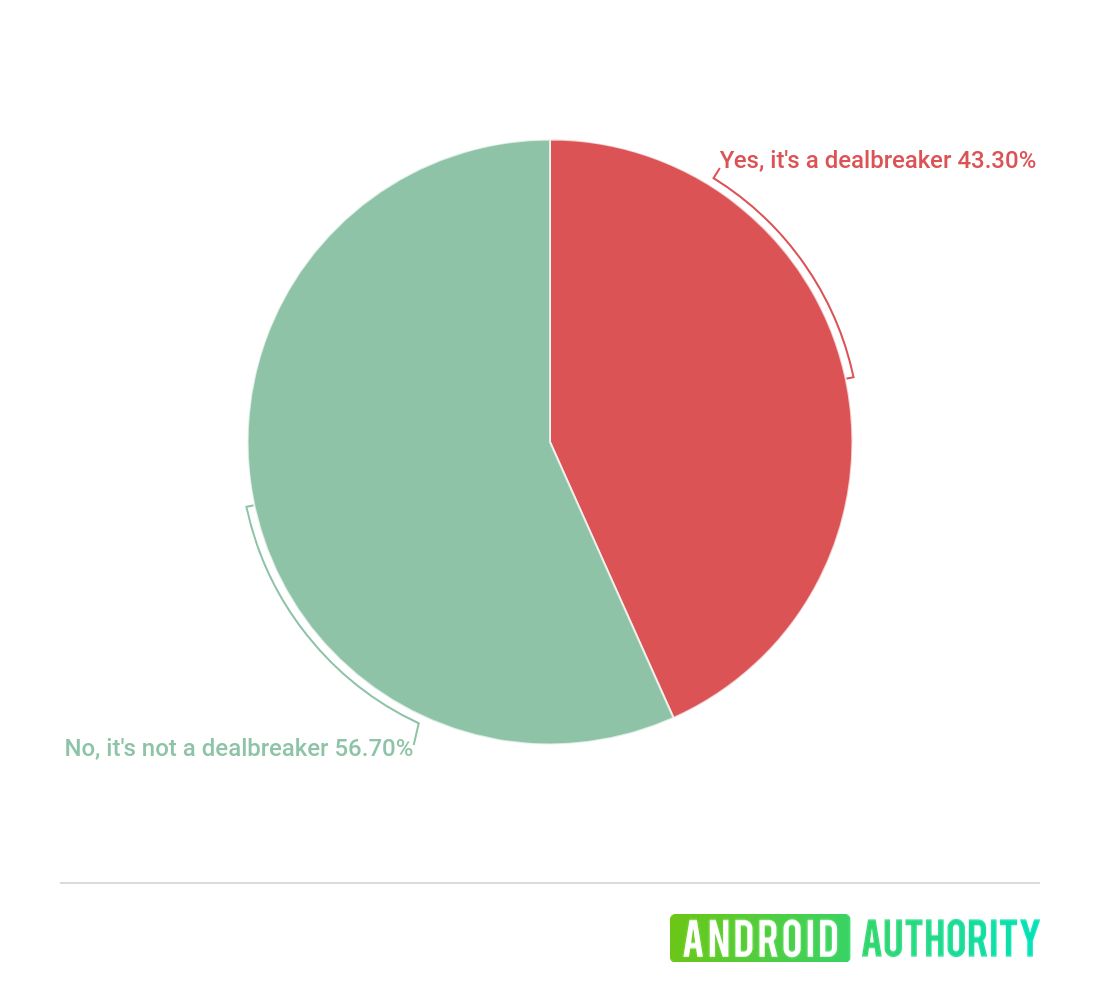
This suggested that Android Authority readers were willing to overlook the lack of top-end power if the Pixel 5 delivered in other areas (e.g. pricing and extra features).
We also asked our readers whether the Pixel 5 takes better photos than the Samsung Galaxy S20 FE, and most of them answered that it does. As you can see from the data below, 78.4% of our readers prefer the Pixel 5 over the S20 FE in this area.
To learn more about what our readers think of the Pixel 5, including whether or not it’s hot and if they plan on buying it, click here.
Google Pixel 5 specs
The Google Pixel 5 isn’t going to win any awards for sheer horsepower, but the phone still brings quite a few features to the table anyway. Check out our Google Pixel 5 specs overview below.
| Google Pixel 5 | |
|---|---|
Display | 6-inch OLED 2,340 x 1,080 resolution 432ppi 90Hz refresh rate 19.5:9 aspect ratio >1,000,000:1 contrast ratio |
Processor | Qualcomm Snapdragon 765G 2x Cortex-A76 6x Cortex-A55 Titan M Security Module |
GPU | Adreno 620 |
RAM | 8GB LPDDR4x |
Storage | 128GB No microSD slot |
Cameras | Rear Main: 12.2MP, f/1.7 aperture, 1.4µm pixels, optical + electronic image stabilization Secondary: 16MP, f/2.2 aperture, 1 micron pixel, ultra-wide (107-degree FoV) 4K at 60fps/30fps Front 8MP sensor, f/2.0 aperture, 1.12µm pixels, fixed focus, 83-degree FoV |
Headphone jack | No |
Battery | 4,080mAh 18W charging 12W wireless charging Reverse wireless charging |
IP rating | IP68 |
Sensors | Proximity / ambient light sensor Accelerometer Gyrometer Magnetometer Pixel Imprint fingerprint sensor Barometer Spectral and flicker sensor |
Software | Android 11 |
Dimensions and weight | 144.7 x 70.4 x 8mm 151g |
Colors | Just Black, Sorta Sage |
Is the Pixel 5 camera any good?
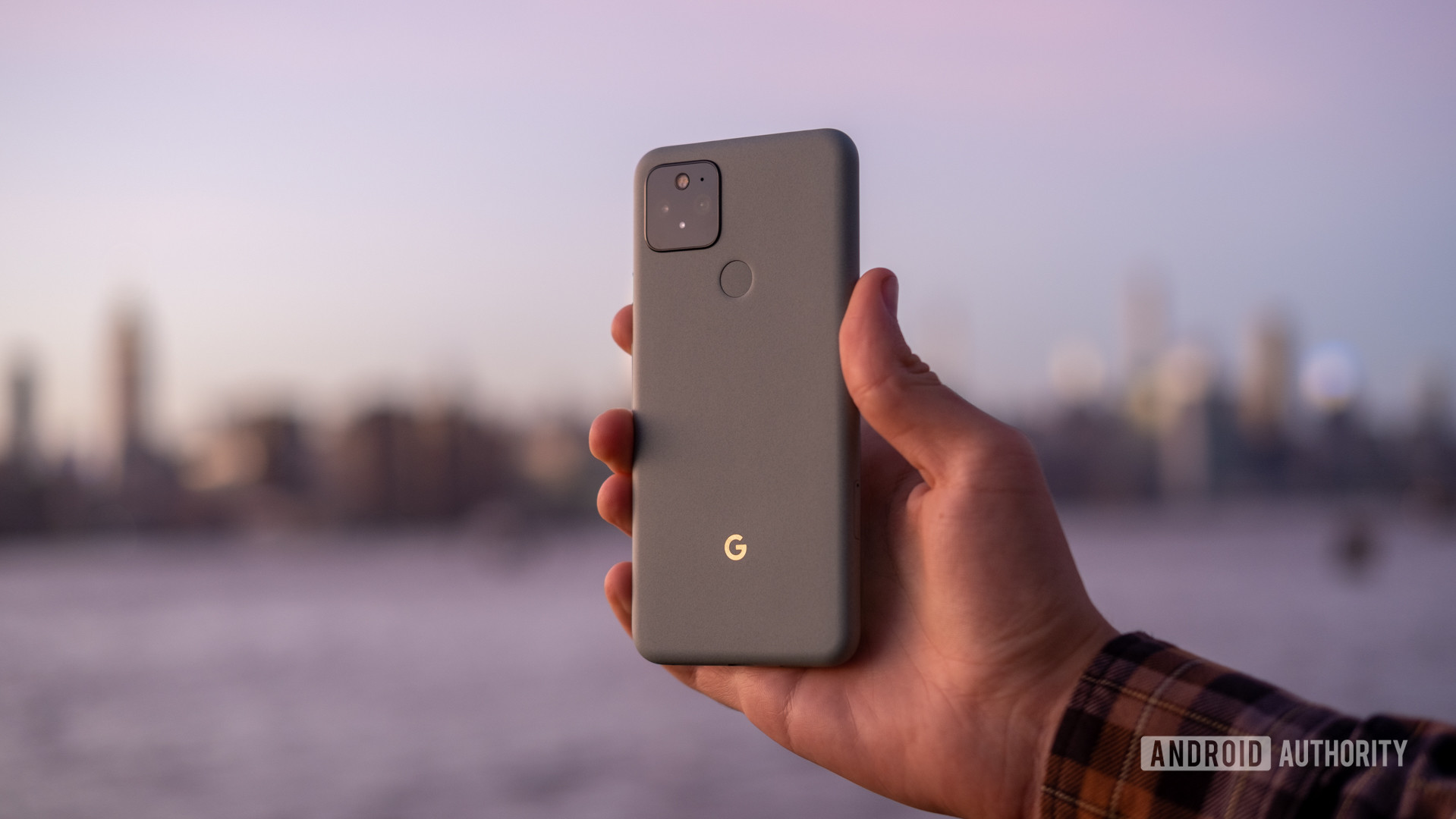
The Pixel 5 adopts the same 12MP IMX363 main camera we’ve seen on several generations of Pixels now, including the Pixel 3a and Pixel 4a. The secondary camera is a completely different story though, as Google has eschewed the Pixel 4 line’s 16MP telephoto camera in favor of a 16MP ultra-wide shooter. This new camera means you can capture many scenes without having to take a few steps back, such as cityscapes, landscapes, and groups of people. So what kind of results should you expect from the cameras, then?
Well, David Imel praised the photo quality in his Pixel 5 review, noting a pleasant shift to warmer images compared to the Pixel 4. It’s not all good news, though. More specifically, he felt that scenes with a lot of detail can “look busy and overly contrasted” and that busy scenes featuring people can often see the Pixel 5 “process people like the rest of the scene.”
David also addressed the ultra-wide camera performance, saying it wasn’t quite as wide as rival phones but that the color profile was “fairly similar” to the main camera. It’s fairly common to see a completely different color profile for the ultra-wide on other devices. This discrepancy can result in wildly different photos compared to your expectations, so we’re glad Google tuned things accordingly here.
Don’t get us wrong — the Pixel 5 is still one of the best camera phones you can get, as it takes great images in just about any lighting condition. However, the competition is catching up. David thinks that almost everyone will like the photos captured by the Pixel 5, but a bigger sensor would have maintained its reputation as the king of smartphone cameras.
Software is what makes the cameras on Pixel phone shine, and with the Pixel 5, you’re getting a few new features. The first one is portrait light, which emulates a floating light source that you can shift around the scene and vary in intensity to add or reduce contrast to a subject’s face or clothes. It works really well and produces natural results.
Then there’s Cinematic Pan that uses slow-motion video and software cropping to produce some incredibly smooth pans, an enhanced portrait mode that now works in conjunction with Night Sight, and more.
If you want to view sample images taken with the Pixel 5 in full resolution, you can do so here. Alternatively, check out our full camera review at the link to learn a few more details.
How is the Pixel 5 battery life?
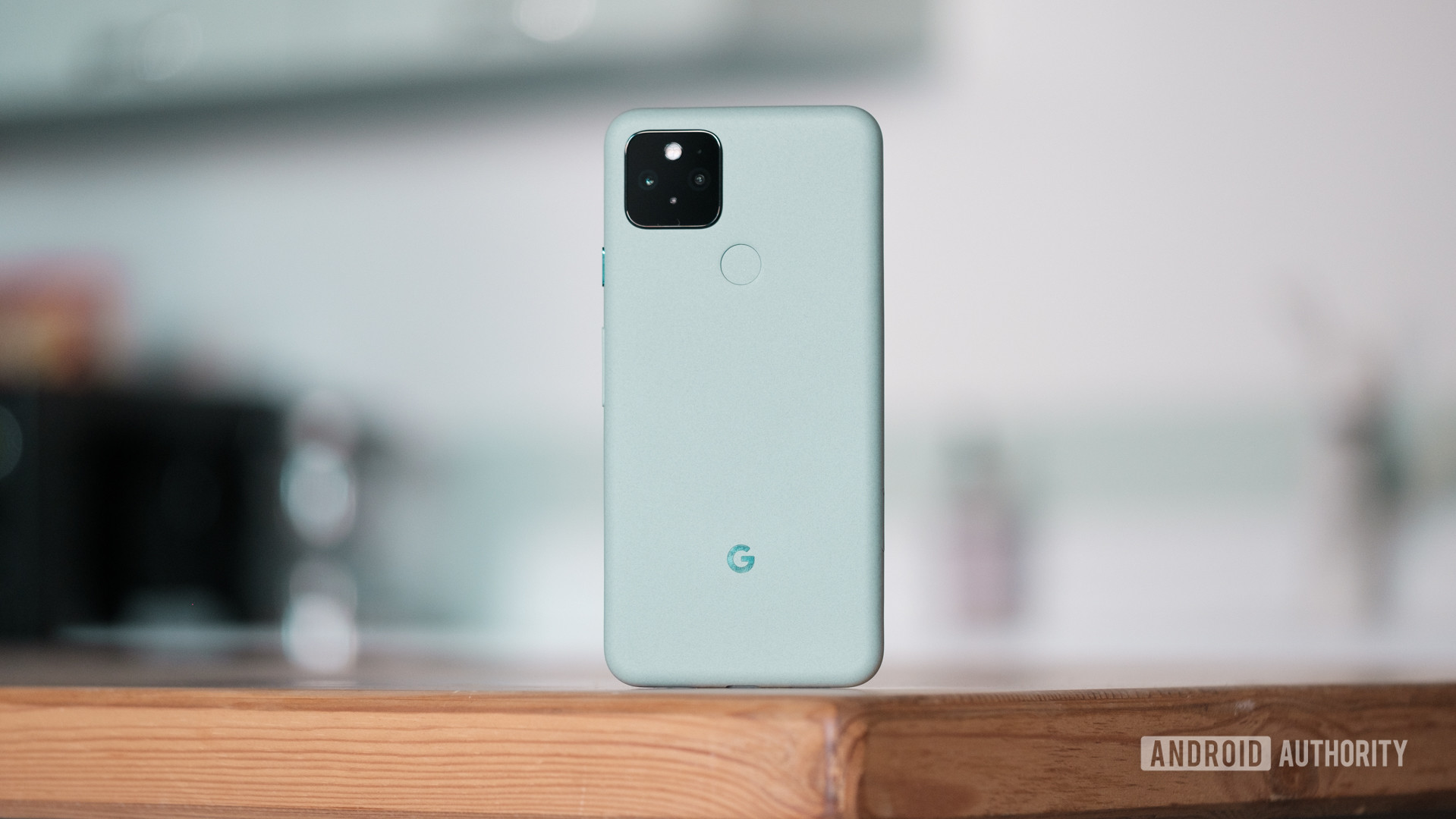
Google’s new phone features a 4,080mAh battery, which is still smaller than many rival devices, but definitely the biggest we’ve seen in a Pixel. For comparison, the Pixel 4 had a 2,800mAh battery and used a more power-hungry processor — the Qualcomm Snapdragon 855.
David noted that he managed to eke out almost eight hours of screen-on time with the Pixel 5, taking the phone off charge at 8:30AM and having it conk out at 11PM the next day. Heavier usage involving 4K video recording and mobile data usage resulted in closer to six hours of screen-on time, with the phone going off the charger at 7:30AM and still having 10% juice left just after midnight.
Google is also introducing extreme battery saver mode on the Pixel 5. This allows you to decide which apps you’d like to keep on while everything else is paused. Google says this will get you up to 48 hours of extra battery life.
The phone supports 18W charging, which gets the job done but is much slower than a lot of its competitors. Even mid-range devices can hit 30W of charging these days, while other handsets like the OPPO Find X5 Pro support as much as 80W charging. The Pixel 5 also supports wireless charging at 12W and reverse charging at 5W.
Is the Pixel 5 fast enough?
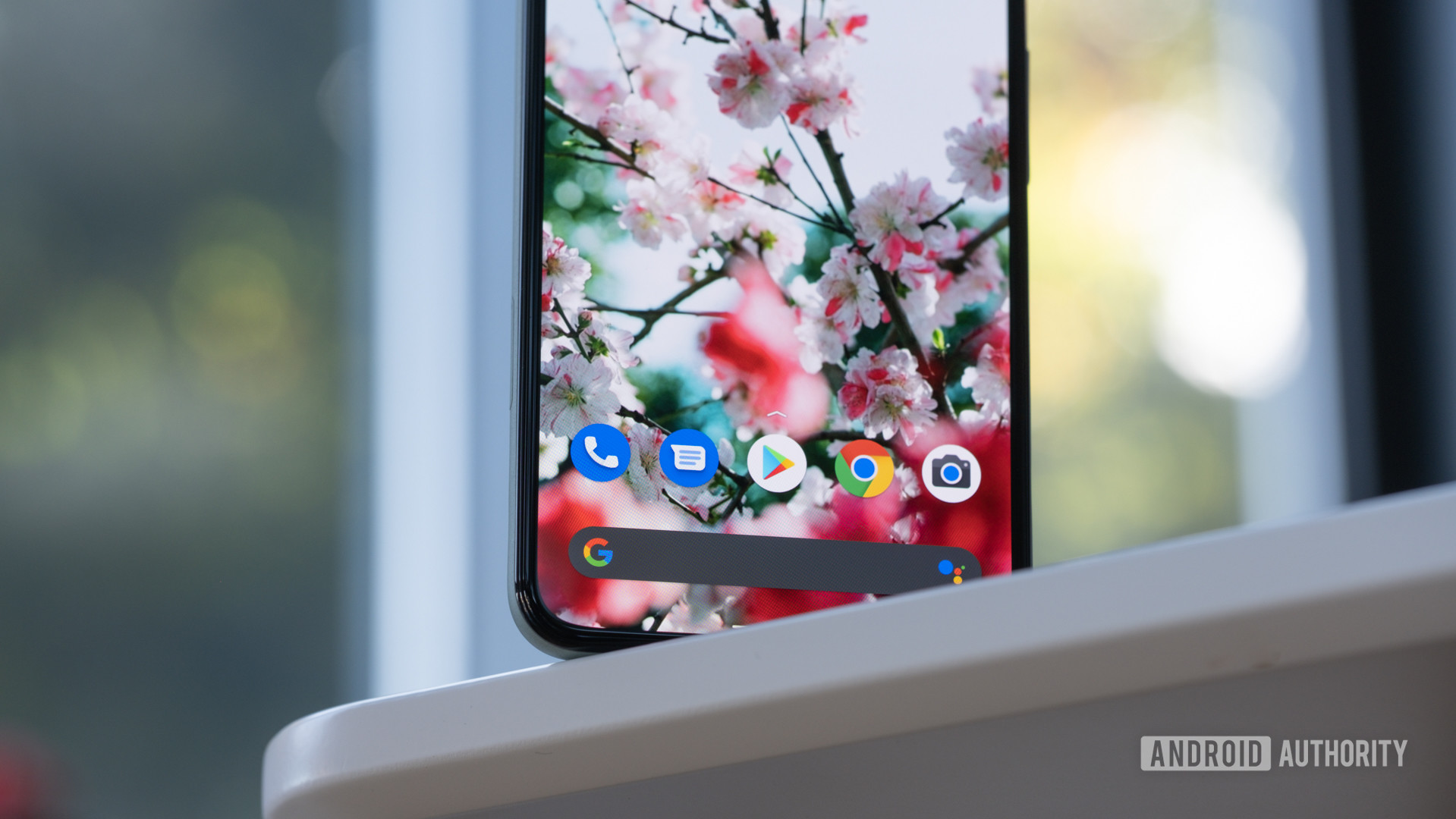
One thing that’s a certainty is that the Pixel 5 is weaker than the Pixel 4 and other 2019 flagships (let alone 2020 flagships) when it comes to sheer CPU and graphical power. Our own Robert Triggs compared the Snapdragon 765G to 2020 and 2019 flagship silicon, and the results tell us a lot.
The CPU performance gap is pretty small between the Snapdragon 765G and the Snapdragon 855 when it comes to single-core performance. But the Snapdragon 855 streaks ahead when it comes to multi-core results, owing to it offering more heavyweight CPU cores. We also see a pretty big gap when it comes to graphical performance.
In other words, those wanting to play the most advanced games and emulators at a smooth framerate might want to buy a phone with a flagship processor like Snapdragon 888, for example. But the Pixel 5’s chipset should still deliver great performance in general and in most games. In fact, as noted in his review, David didn’t notice any lag or slowdown with general usage.
Google Pixel 5 vs Pixel 4: What’s new?
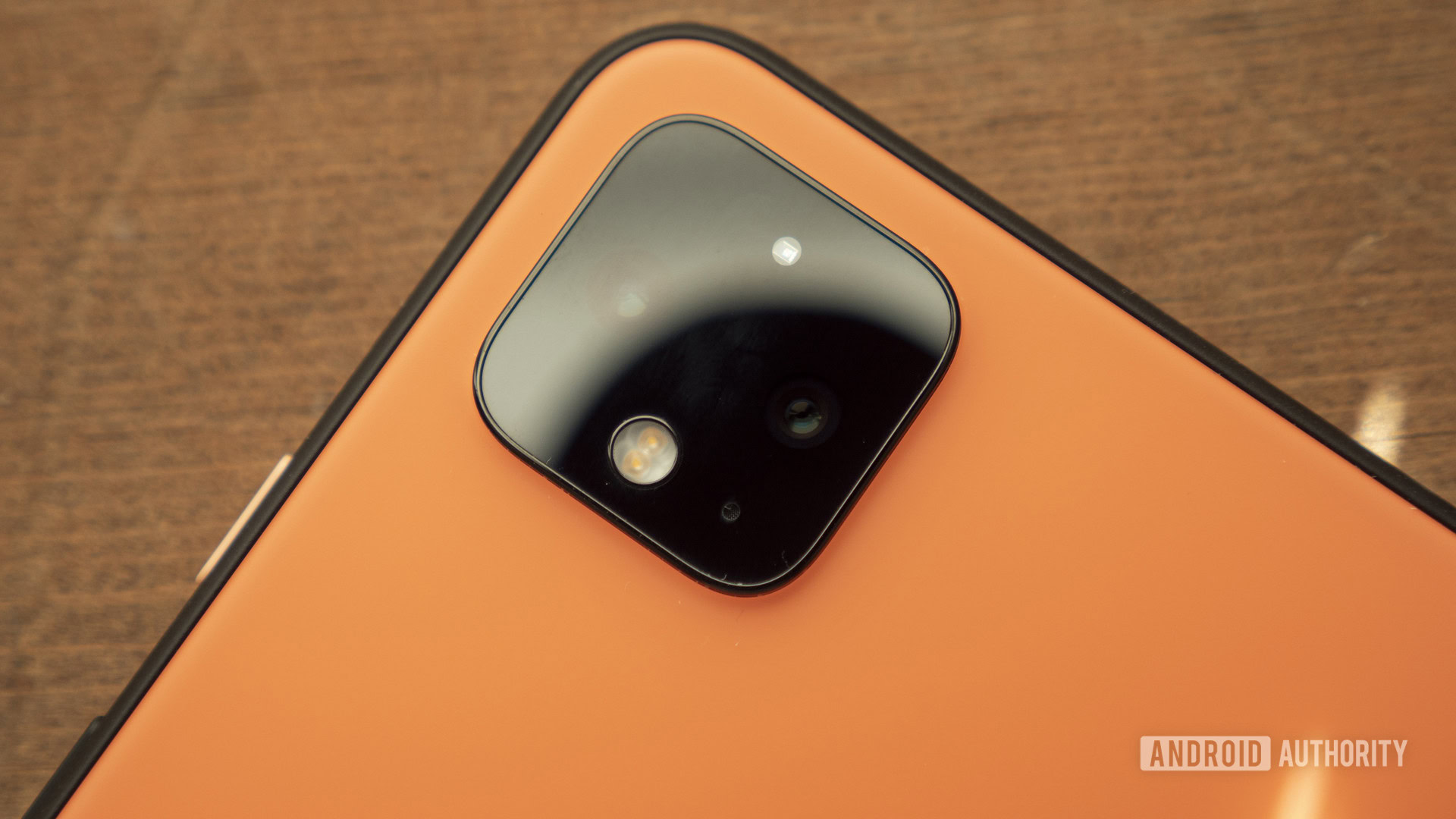
The Pixel 5 lacks two main features compared to the Pixel 4, and that’s the flagship silicon and Motion Sense/face unlock technology. We’ve already covered the chipset disparity, but the lack of Motion Sense and associated face unlock tech is pretty notable.
Motion Sense gestures weren’t to everyone’s liking, while face unlock has become less important than ever thanks to COVID-19. However, Google has resurrected the rear fingerprint scanner, allowing you to unlock your phone while still wearing a mask. Furthermore, fingerprint unlock is supported by a ton of apps (unlike face unlock).
Otherwise, the Pixel 5 also sees RAM and base storage upgrades. Instead of the Pixel 4’s 6GB of RAM and 64GB of base storage (with an option for 128GB), you’ve got 8GB of RAM and 128GB as the sole option.
Moving to photography, Google has ditched the Pixel 4 family’s 16MP telephoto secondary camera in favor of a 16MP ultra-wide secondary shooter. It’s disappointing that Google didn’t offer a flexible triple rear camera setup, as we’ve seen from rival manufacturers. Nevertheless, we’re glad to see an ultra-wide rear camera on a Pixel, and Super Res Zoom should still deliver decent results at short-range zoom factors.
We also see a battery capacity bump compared to the Pixel 4 series, leaping to 4,080mAh. Meanwhile, the Pixel 4 packs a 2,800mAh cell, while the Pixel 4 XL offers a 3,700mAh battery.
The screen size falls in between the Pixel 4’s 5.8-inch panel and the XL’s 6.3-inch screen, coming in at 6-inches (19.5:9, 2,340 x 1,080). Much like the Pixel 4a, though, the Pixel 5 packs a more modern punch-hole cutout instead of a bezel or notch.
What about the Google Pixel 4a 5G?
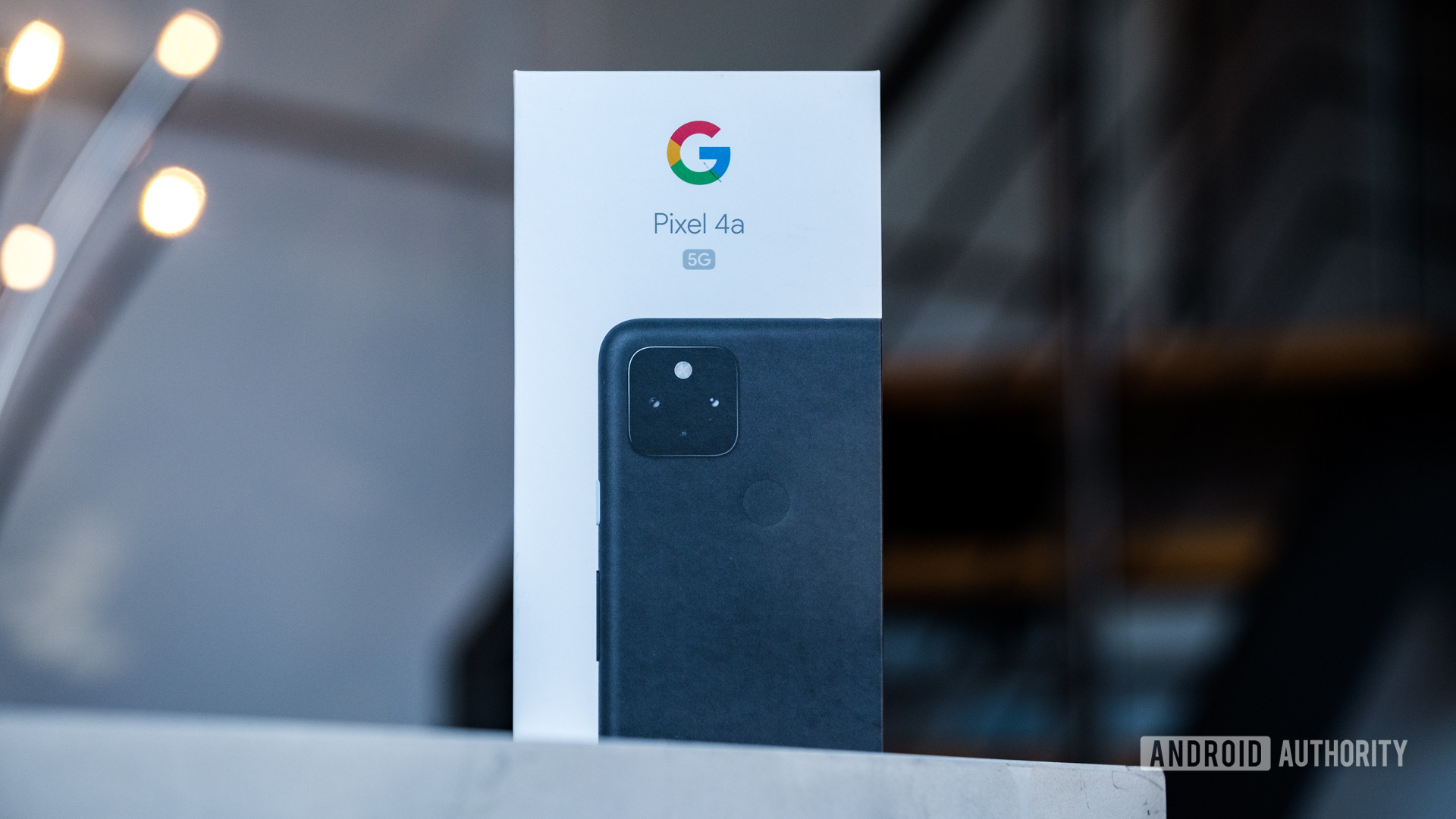
The cheaper Pixel 4a 5G has quite a bit in common with the Pixel 5. The biggest shared feature is the Snapdragon 765G chipset and associated 5G connectivity. You’re getting less RAM with the cheaper phone (6GB), but the common silicon means you can expect a similar level of performance on the whole.
Other common features include the same dual rear camera setup (normal and ultra-wide), 128GB of storage, and 18W wired charging. There are a few compromises to consider, though.
The biggest cutback might be the 6.2-inch OLED screen, which lacks a high refresh rate compared to the 90Hz-toting Pixel 5. This might not be a dealbreaker for most, but those looking for a smoother, more responsive screen, and those who are upgrading from a phone with a high refresh rate panel, might be disappointed.
Other notable cutbacks include no wireless charging, no significant IP rating, a plastic back, and a slightly smaller battery at 3,885mAh. Then again, the lack of a high refresh rate means that a small drop in battery size is understandable.
The Pixel 4a 5G retails for $499, making it $200 cheaper than the Pixel 5. Is it worth splashing out that much more for the flagship? Well, that depends on what you want in a smartphone.
What about the Pixel 5a?
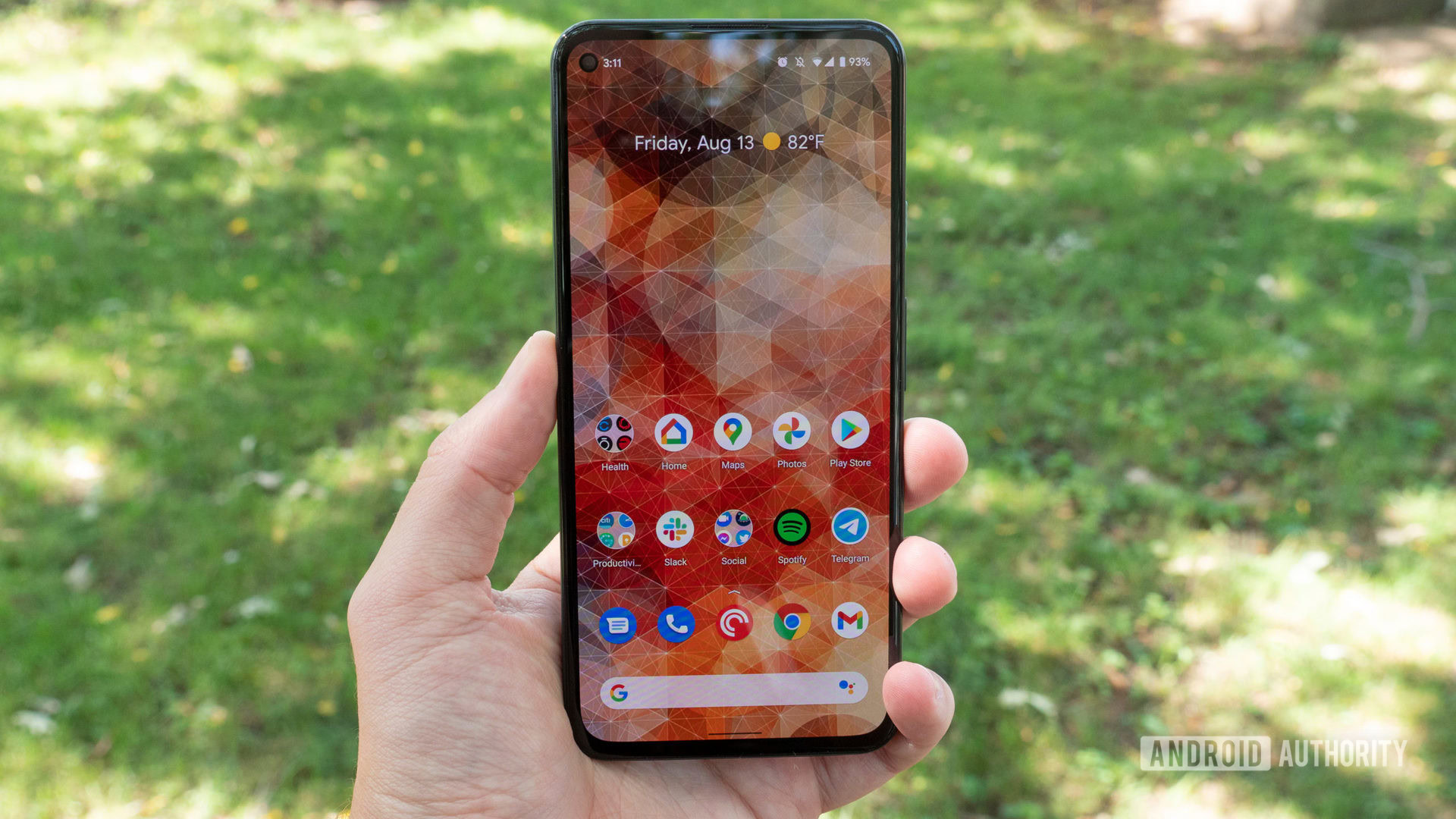
The Pixel 5 has a lot in common with the newer Pixel 5a. They both pretty much look the same, are powered by the same chipset, and have the exact same camera setup. However, the Pixel 5a comes with a bigger battery and a larger display.
On the other hand, you get things like wireless charging, more RAM, and a display with a higher refresh rate with the Pixel 5, You also get a slightly better water resistance (IP68 vs IP67) and support for mmWave 5G.
Regardless, we think the Pixel 5a is the better buy for most people due to the lower price tag. It’s also much easier to buy since the Pixel 5 can be hard to get at the moment. For a more detailed comparison between the two phones, check out the post below.
Read next: Pixel 5a vs Pixel 5 — What’s the difference?
Don’t forget about the Pixel 6 series

The Pixel 5 isn’t the latest Pixel on the market anymore. Google has already released the Pixel 6 series, which offers much more in terms of specs and features. Whereas the Pixel 5 is more of a mid-range device, the Pixel 6 and 6 Pro are flagships that rival the best phones on the market.
Read next: Google Pixel 6 vs Pixel 5
They both sport Google’s own Tensor chipset, come with upgraded cameras, and feature a design some love while others hate. The most impressive thing about the phones, especially the smaller Pixel 6, is their price. The Pixel 6 comes in at just $599, making it $100 cheaper than the Pixel 5 at launch. You really get a lot for your money, especially when considering all the extras the Pixel 6 has compared to the Pixel 5.
The Pixel 6 Pro costs more with its starting price of $899. It’s a great phone overall, although the Pixel 6 is the better alternative to the Pixel 5 due to its lower price point.
What are some good Google Pixel 5 alternatives?
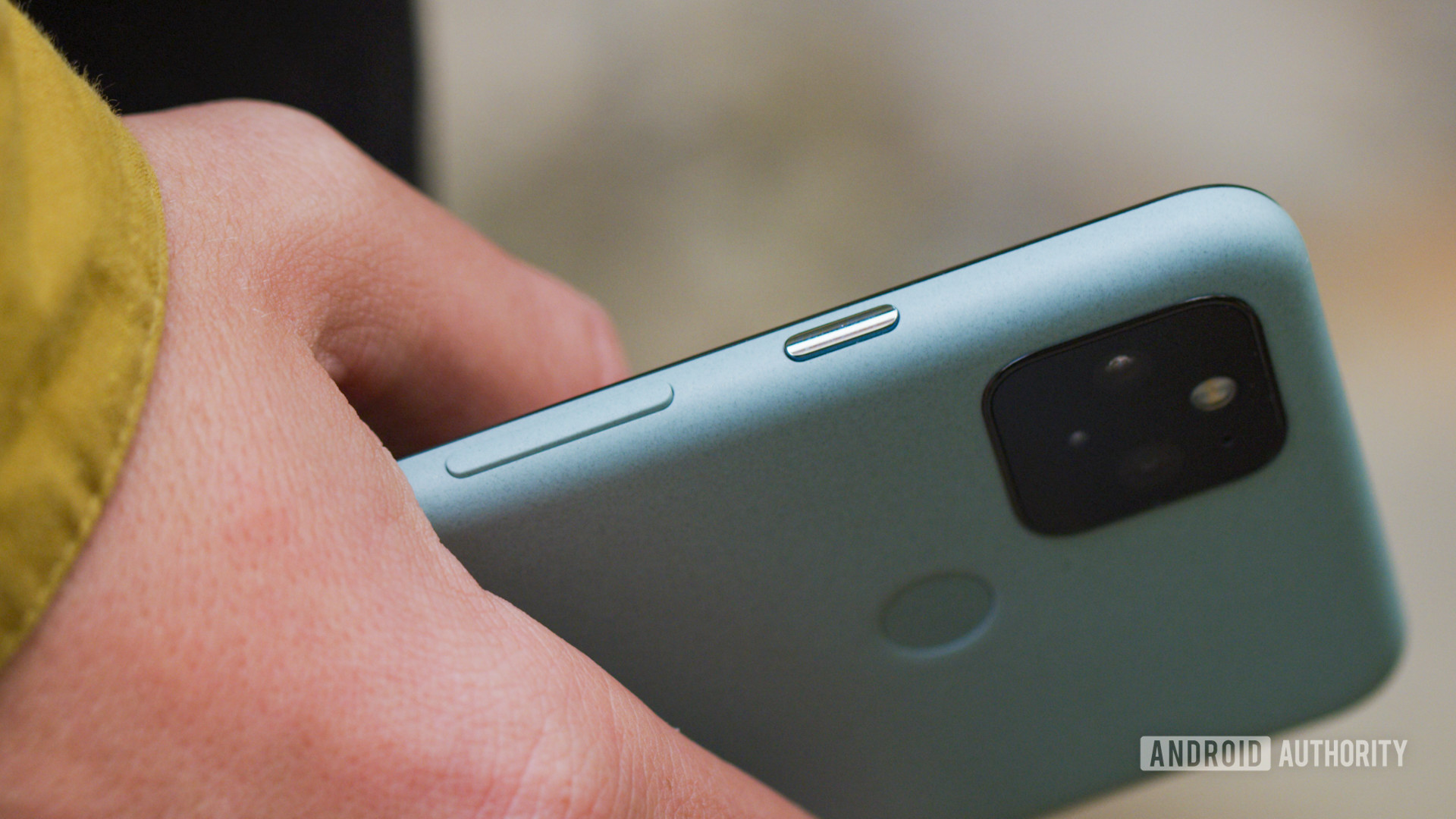
The Pixel 5 is a rather interesting proposition, packing upper mid-range power, a slightly cheaper price than current flagships, as well as premium features like an IP rating and wireless charging.
There are quite a few Pixel 5 alternatives, though, but you’ll need to weigh up pricing, features, and regional availability when making a decision to buy one of them.
Check out a few Pixel 5 alternatives you should consider below. For a more comprehensive list, check out our dedicated post by clicking here.
- Pixel 6 ($599): It costs less than the Pixel 5 did at launch and offers a lot more. It’s also newer and a better option overall.
- Pixel 5a: ($449 at launch): The 5a is a similar phone in many ways. It offers more in some areas, like a larger screen and battery, and less in others as it lacks features like wireless charging. It’s a better buy for most due to its cheaper price tag.
- Pixel 4a 5G ($499 at launch): The Pixel 4a 5G lacks features like water resistance, wireless charging, and a high refresh rate screen. But you’re getting 5G, the same processor, and that familiar stock Android. You’re also getting brisk updates by opting for this phone.
- OnePlus Nord 2 (~$500 at launch): The OnePlus Nord 2 is roughly $200 cheaper than the Pixel 5, but is also 5G-ready, has a 90Hz OLED screen, and a similar-sized battery. It lacks wireless charging, water resistance, and stock Android, but delivers an additional rear camera. You can also pay up to extra for the likes of the OnePlus 10 Pro if you must have a OnePlus phone with top-end power, but the Nord delivers most of the overall experience anyway.
- LG Velvet ($600 at launch): This might be one of the closest phones to the Pixel 5 in North America, aside from the Pixel 4a 5G. You’ve got a similar level of horsepower, 5G, a slightly bigger battery, and a similar price tag. The LG Velvet also sports an optional second screen case, wireless charging, water-resistance and, unlike the Pixel 5, a headphone port. Just don’t expect fast updates, a high refresh rate, or class-leading photo quality.
- Samsung Galaxy S20 FE (~$700 at launch): Samsung’s latest S20 series phone ups the ante over the Pixel 5 by bringing proper flagship power, a 120Hz OLED screen, a bigger battery, and a flexible triple rear camera combo. It also delivers wireless charging and IP68 water resistance, as well as three years of OS updates. Looking for a cheaper Samsung phone as a Pixel 5 alternative? The Galaxy A71 is $100 cheaper than the S20 FE and costs $100 less than the Pixel. You’re missing out on a high refresh rate screen, wireless charging, and water resistance, though. If you’re willing to pay more, the Galaxy S21 FE is a great option as well.
- realme X50 Pro (€600 at launch): realme dropped its first 5G flagship in the first half of 2020, and it still makes for a very attractive proposition. A powerful Snapdragon 865 chipset, 90Hz OLED screen, flexible quad rear cameras, and a 4,200mAh battery with 65W charging make for a great combo. Unfortunately, it lacks wireless charging and an IP rating. realme isn’t quite on Google or Samsung’s level when it comes to update commitments either.
Where to buy the phone
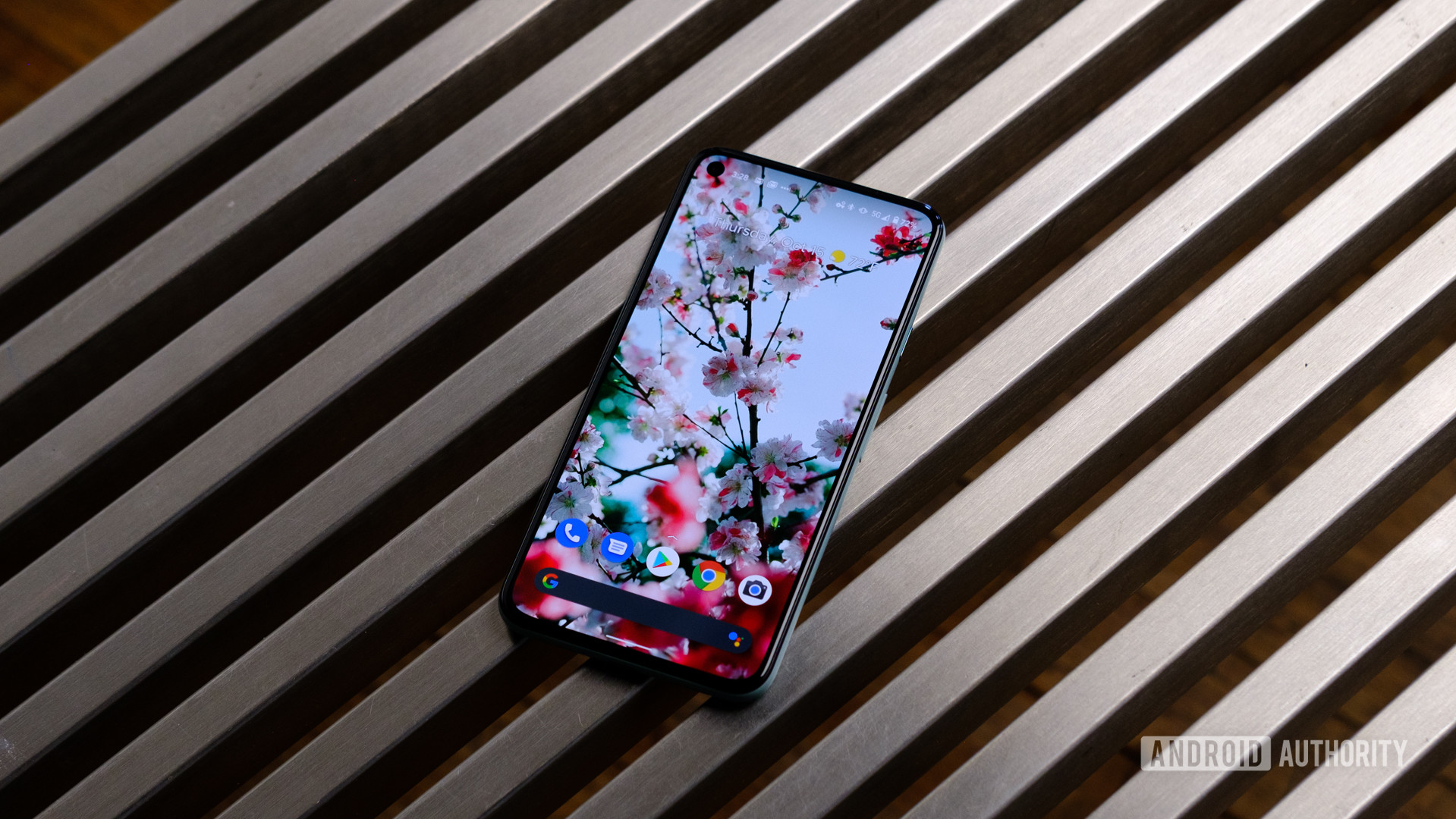
The Google Pixel 5 is available from Amazon and other retailers, although the best place to get it in the US is currently Best Buy. It costs $699. Pricing in Europe is set at £599/€629. You can get yours via the links below.

Google Pixel 5 software and updates
The Google Pixel 5 continues the Google tradition of timely software updates. Those worried about Android version updates and security patches should have peace of mind here. Google commits to three years of Android system updates and security patches for its Pixel phones, and the Pixel 5 is no exception. That’s good but not industry-leading, as Samsung offers four years of software updates for several of its phones.
The company has also started issuing Pixel “feature drops,” which are Pixel and Google app updates rolled into one quarterly update for Pixel phones. Or at least it’s intended to be a quarterly release. For example, the March 2020 feature drop delivered dark mode scheduling, new Motion Sense gestures on the Pixel 4, new emoji, and Rules functionality.
The Pixel 5 ships with Android 11 and has already received Android 12. It will also get Android 13 in 2022 and Android 14 a year after that.
Google Assistant is getting a convenient new feature called “hold for me.” When you’re put on hold on a phone call, tapping the “hold for me” button lets the Assistant stay on hold for you and alert you when someone begins talking again.
Top Pixel 5 questions and answers
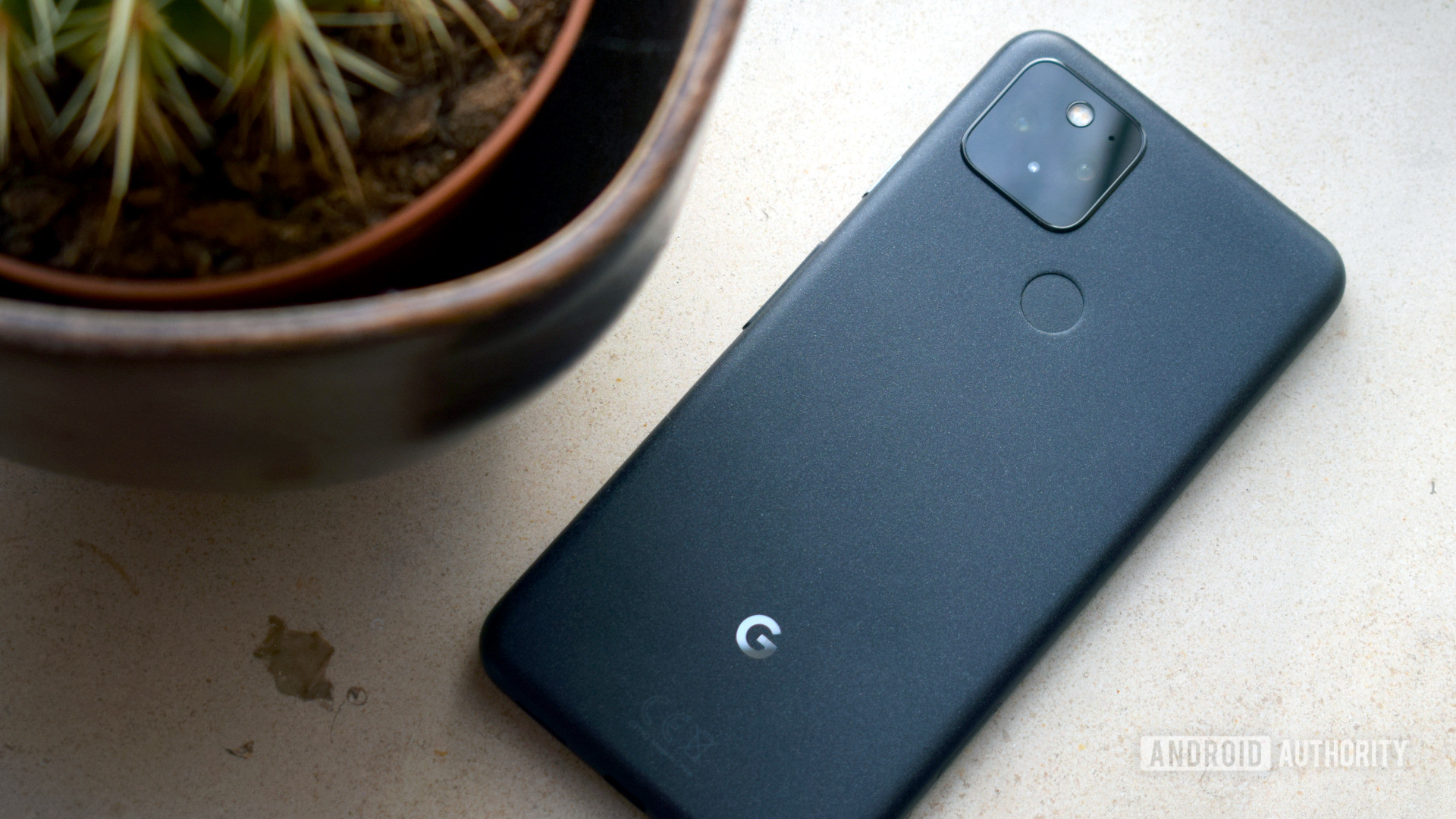
Q: Where’s the Google Pixel 5 XL?
A: There isn’t a Pixel 5 XL, unfortunately, with the Pixel 4 XL or the Pixel 4a 5G being your next best bet if you want a bigger Pixel.
Q: What kind of 5G networks are supported?
A: The Pixel 5 supports both mmWave and sub-6GHz 5G networks.
Q: Does the Pixel 5 have a headphone jack?
A: No, the Pixel 5 doesn’t offer a headphone jack. Thankfully, this option is available on the 4a series.
Q: Does the Pixel 5 has a microSD card slot?
A: Unfortunately, there’s no microSD expansion here. At least you get 128GB of base storage.
Q: What colors is the Pixel 5 available in?
A: The Pixel 5 is available in Sorta Sage and Just Black.
Q: Is the Pixel 5 waterproof?
A: The phone has an IP68 rating for water and dust resistance, so it should theoretically survive a dunk in the pool just fine.
Q: Does the Pixel 5 have face unlock and Motion Sense gesture controls?
A: The Pixel 5 lacks both face unlock and gesture controls via Motion Sense hardware. At least you have a fingerprint scanner now.
Q: Does the Pixel 5 support wireless charging?
A: Yes, the phone supports wireless charging up to 12W with a Qi-certified EPP charger.
Q: What’s the Pixel 5’s back cover made out of?
A: Google confirmed that the back cover is made out of aluminum with a layer of “bio-resin” on top of it. The company also cut a hole in the aluminum to enable wireless top-ups.
More coverage
- Google Pixel 5 vs Samsung Galaxy S20 FE: Which is better?
- Google Pixel 5 review second opinion
- Camera shootout: Google Pixel 5 tested vs the best Android camera phones
- OnePlus 8T vs Google Pixel 5: Which affordable 5G phone should you buy?
- Google Pixel 5 vs Apple iPhone 12: Which should you buy?
- The best Google Pixel 5 cases you can buy
- The best Google Pixel 5 screen protectors available